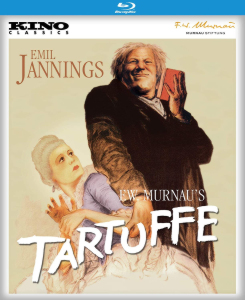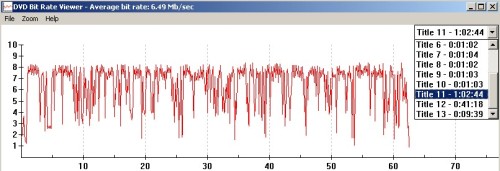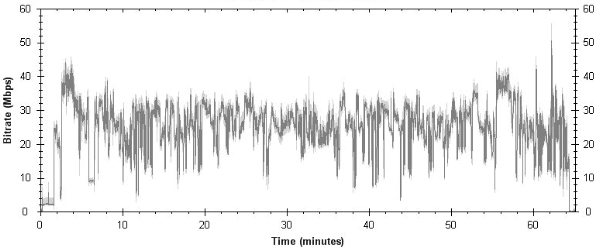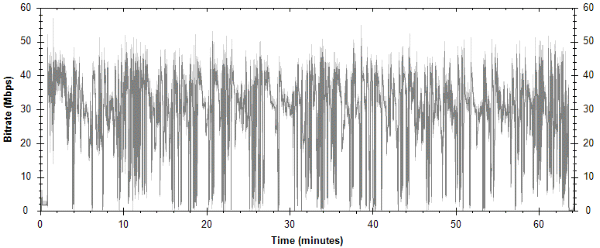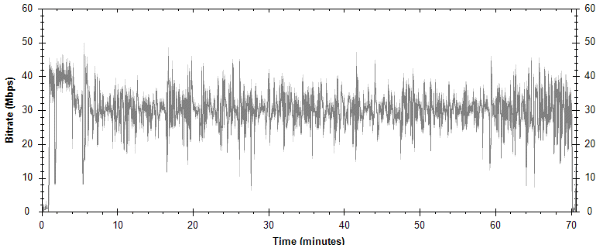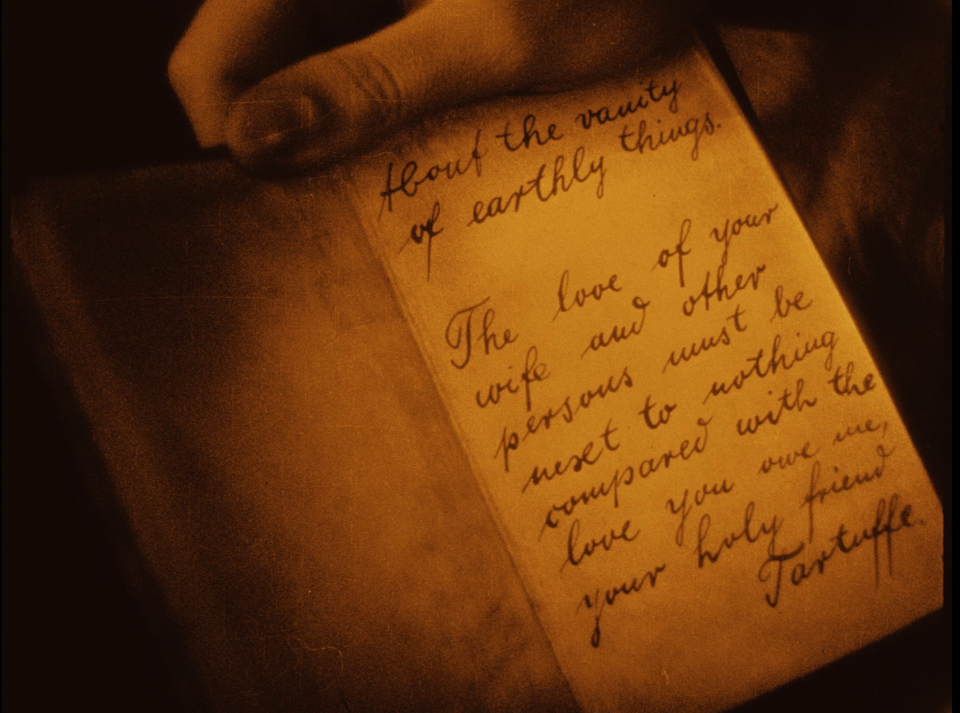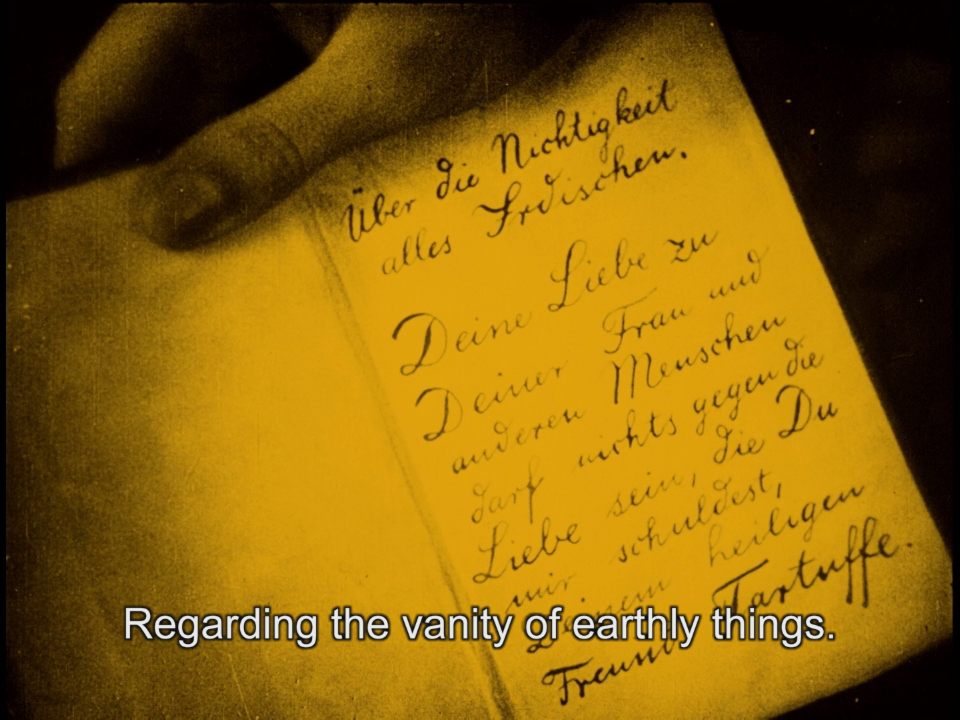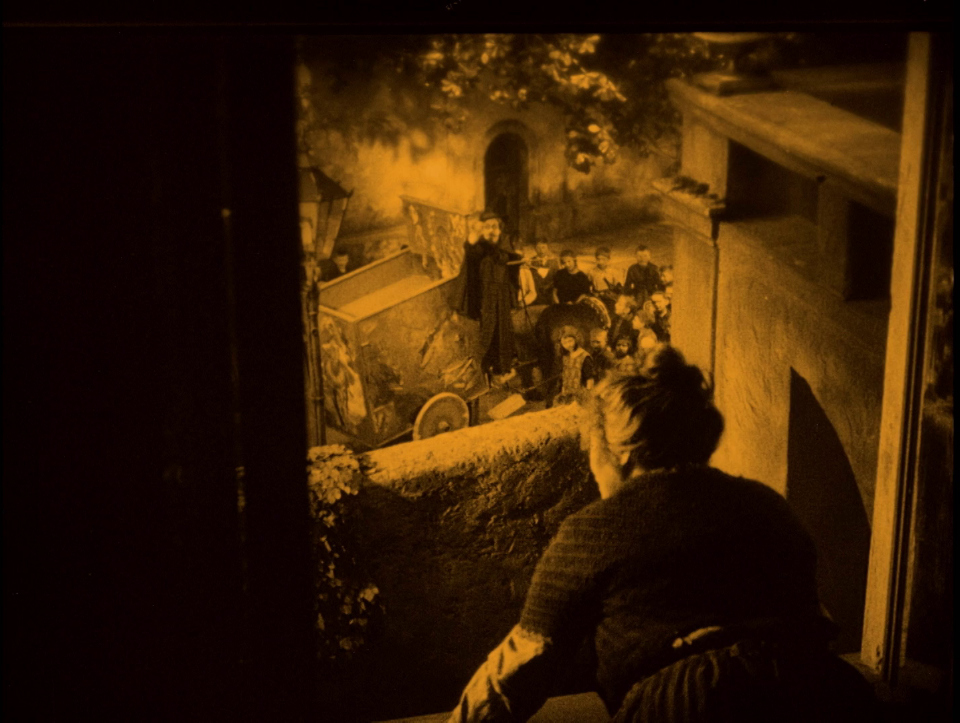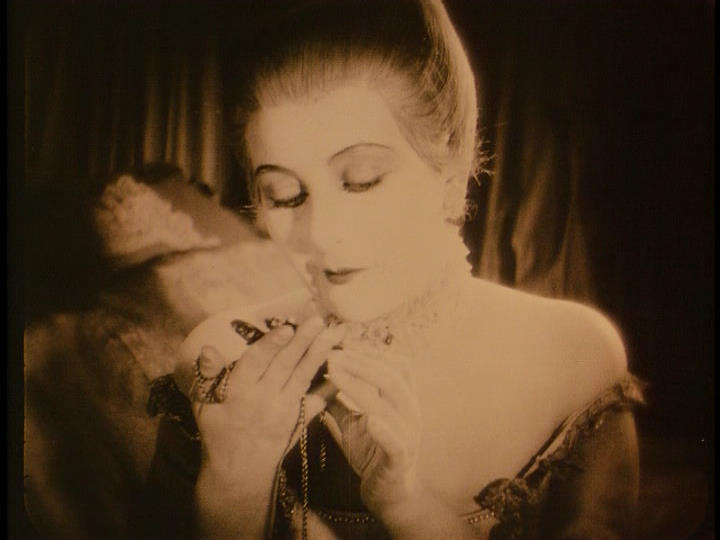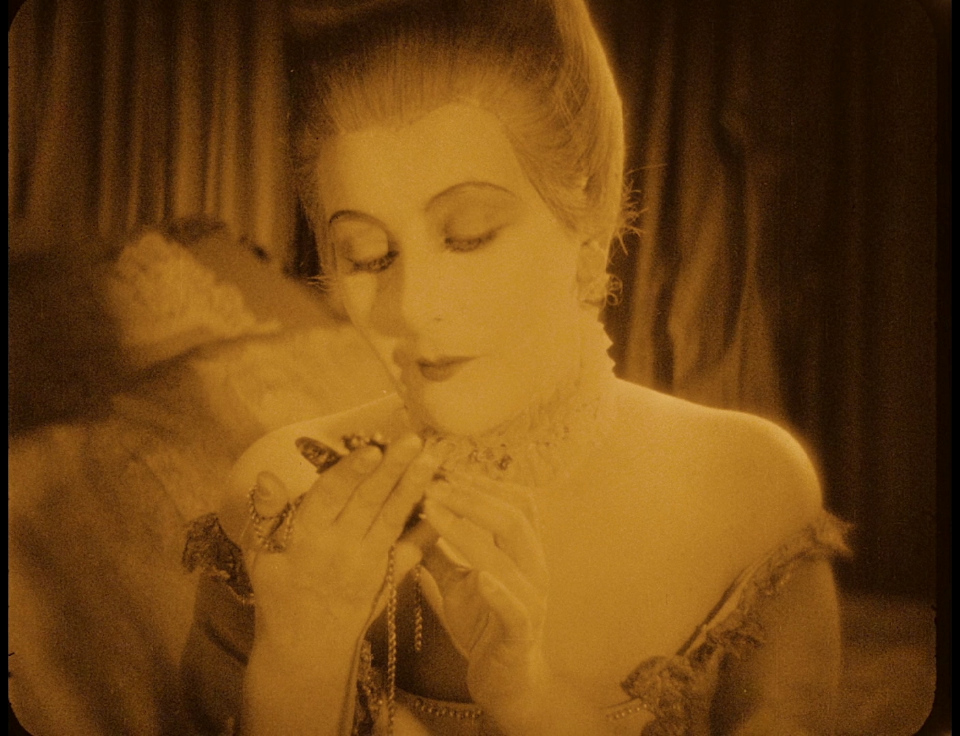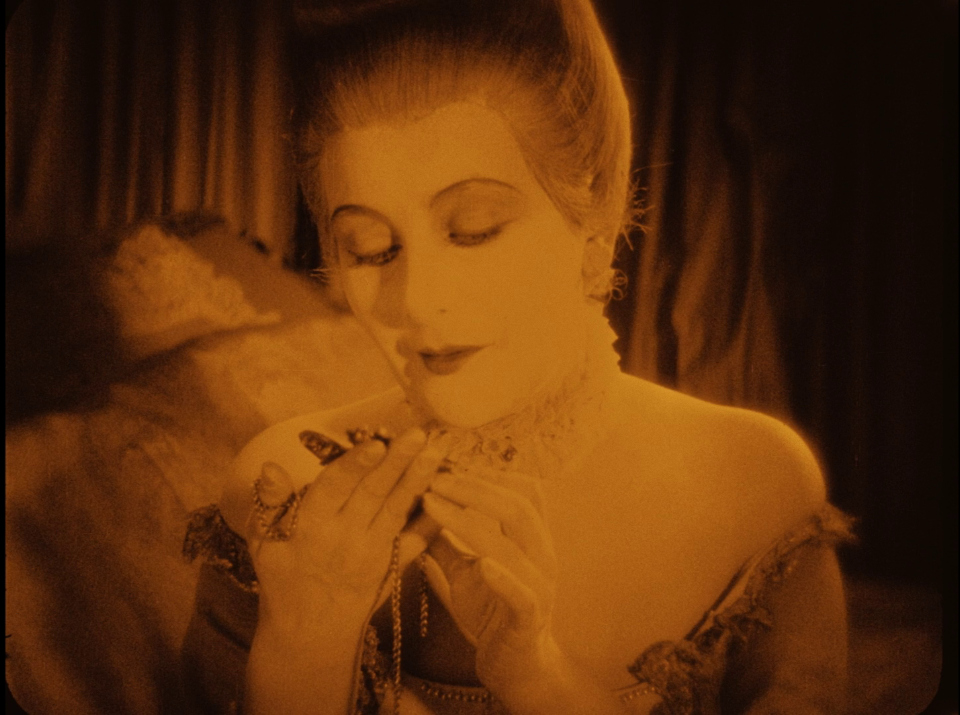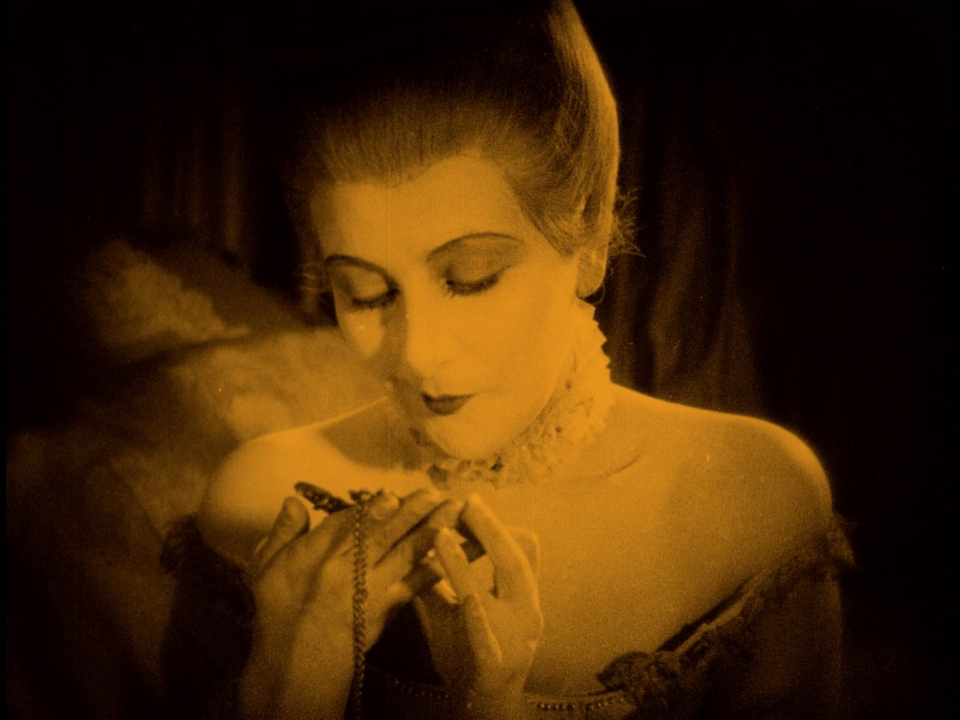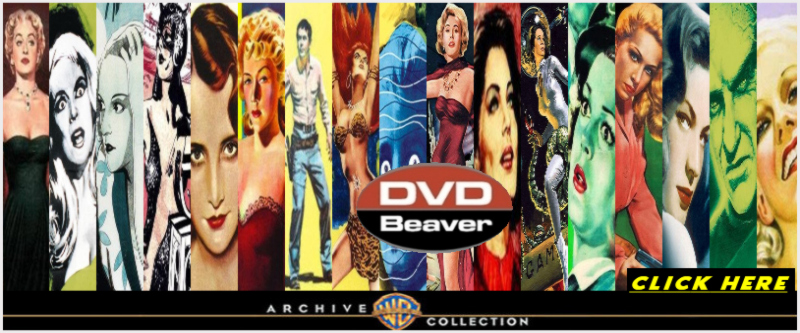|
We have started a Patreon page with the hopes that
some of our followers would be
willing to donate a small amount to keep DVDBeaver
alive. We are a tiny niche, so your
generosity is vital to our
existence.
We are talking about a minimum of
$0.10 - $0.15 a day, perhaps a
quarter (or more) to those who won't
miss it from their budget. It
equates to buying DVDBeaver a coffee
once, twice or a few times a month.
You can then participate in our
monthly
Silent
auctions,
and have exclusive access to many 'bonus' High Resolution screen captures
(in lossless PNG Format) - both
4K UHD
and
Blu-ray
(see
HERE). |
![]()
![]()

![]()
![]()
|
Search DVDBeaver |
S E A R C H D V D B e a v e r |
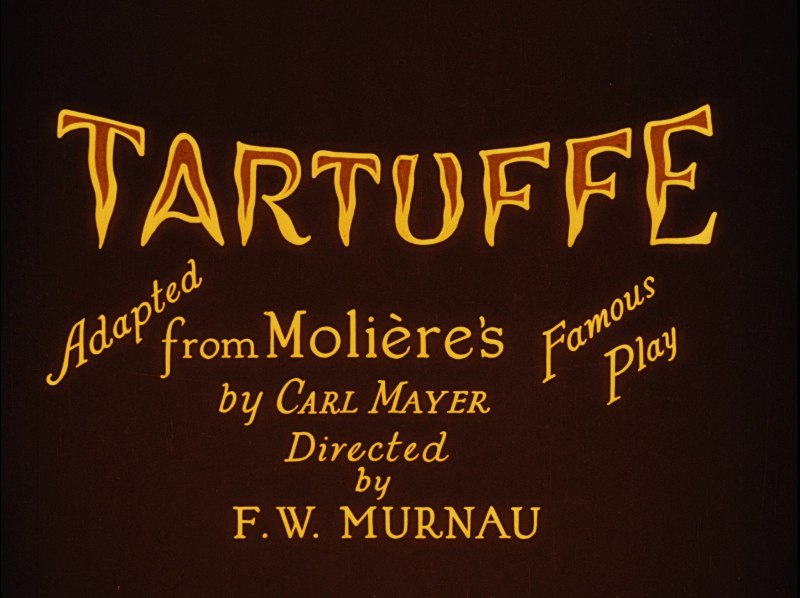
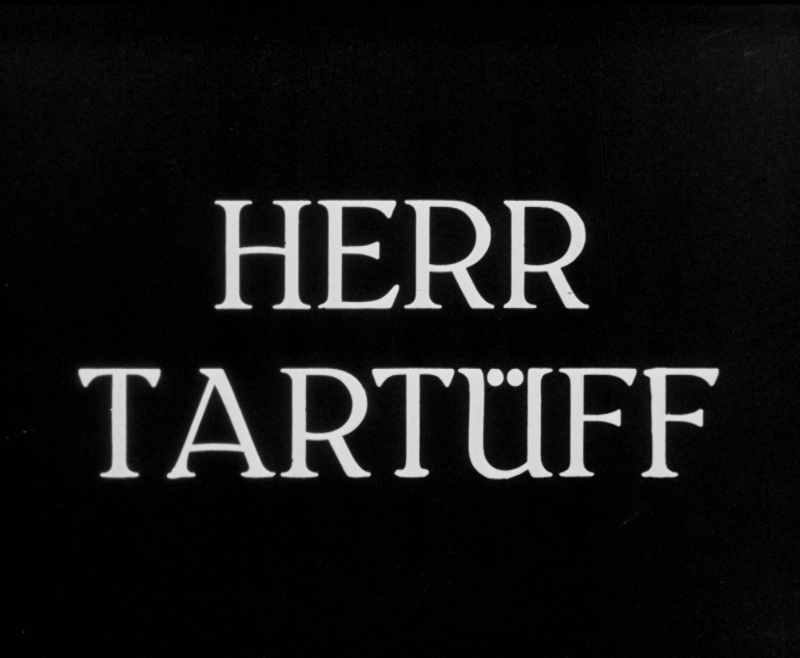
(aka 'Tartüff' or 'Tartuffe')
directed by F.W.
Murnau
Germany 192
|
The most gifted visual storyteller of the German silent era, F. W. Murnau crafted works of great subtlety and emotional complexity through his absolute command of the cinematic medium. Known for such dazzling films as Nosferatu (1922), The Last Laugh (1924), Faust (1926), and Sunrise (1927), Murnau was also drawn to more intimate dramas exploring the dark corners of the human mind. In Tartuffe (Herr Tartüff), he revisits Moliére's fable of religious hypocrisy, in which a faithful wife (Lil Dagover) tries to convince her husband (Werner Krauss) that their morally superior guest, Tartuffe (Emil Jannings), is in fact a lecherous hypocrite with a taste for the grape. To endow the story with contemporary relevance, Murnau frames Moliére's tale with a modern-day plot concerning a housekeeper's stealthy efforts to poison her elderly master and take control of his estate. *** F. W. Murnau made this film adaptation of Molière's satire for UFA early in 1925 and it was released the following year, shortly followed by Faust. By presenting the play as a film-within-a-film, Murnau takes the opportunity to place the material in a contemporary setting, sandwiched inside a morality lesson about greed and hypocrisy. A devious housekeeper convinces her master to cut his worthy grandson out of his will and to leave the riches to her instead. The grandson, disguised as the projectionist of a traveling cinema show, flatters his way into the home to project a film of Tartuffe in an attempt to open his grandfather's eyes. Emil Jannings plays Tartuffe with creepy panache in a tour-de-force turn alongside Lil Dagover and Werner Krauss. Unjustly neglected for decades, perhaps because of its low-key nature compared with Murnau's more grand masterpieces, this delightful curiosity is more than a mere trifle. Tartuffe affirms Murnau as a master of multifarious cinematic disciplines: from the set-based dreams of Faust and Sunrise, to the naturalist landscapes of Nosferatu, City Girl, and Tabu. In Tartuffe we find an intimate Murnau, relying on close-ups and the performances of his actors to create magic. |
Posters
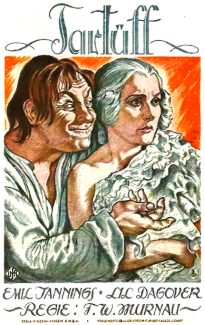 |
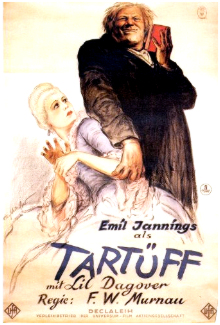 |
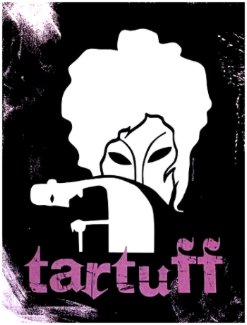 |
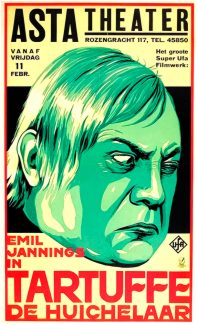 |
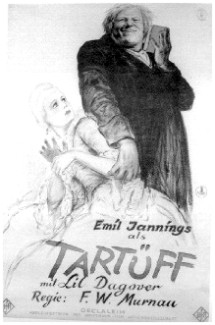 |
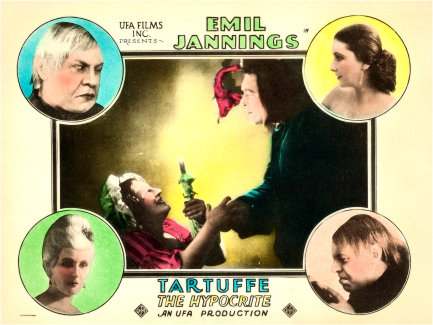 |
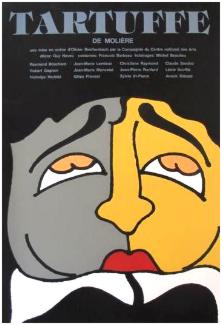 |
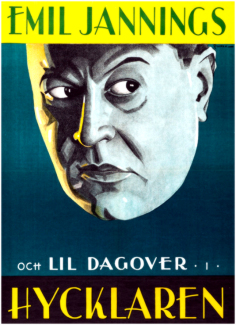 |
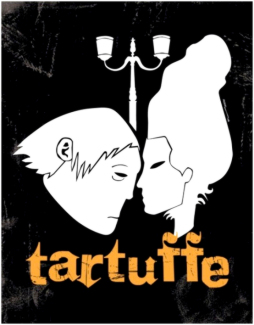 |
Theatrical Release: November 16th, 1925
Reviews More Reviews DVD Reviews
Review: Kino - Region 'A' - Blu-ray
| Box Cover |
|
CLICK to order from: |
| Distribution | Kino - Region 'A' - Blu-ray | |
| Runtime | US Version: 1:04:11.625 / German: 1:10:35.856 | |
| Video |
1. 33:1 1080P Dual-layered Blu-rayDisc Size: 33,665,137,842 bytesUS Version : 15,336,668,352 bytesGerman Version: 18,214,776,192 bytes Video Bitrate: 28.60 Mbps / 29.87 MbpsCodec: MPEG-4 AVC Video |
|
|
NOTE: The Vertical axis represents the bits transferred per second. The Horizontal is the time in minutes. |
||
| Bitrate Masters of Cinema (2005) DVD: |
|
|
| Bitrate Kino (2009) DVD: |
|
|
| Bitrate Masters of Cinema (2016) Blu-ray: |
|
|
| Bitrate Kino US version Blu-ray: |
|
|
| Bitrate Kino German version Blu-ray: |
|
|
| Audio |
US Version: LPCM Audio English 1536 kbps 2.0 / 48 kHz / 1536 kbps / 16-bit German version: DTS-HD Master Audio English 2103 kbps 5.1 / 48 kHz / 2103 kbps / 16-bit (DTS Core: 5.1 / 48 kHz / 1509 kbps / 16-bit) Dolby
Digital Audio English 224 kbps 2.0 / 48 kHz / 224 kbps / DN -4dB Dolby Digital Audio English 384 kbps 2.0 / 48 kHz / 384 kbps / DN -2dB |
|
| Subtitles | English, None (for German version only) / English Intertitles | |
| Features |
Release Information: Studio: Kino
1. 33:1 1080P Dual-layered Blu-rayDisc Size: 33,665,137,842 bytesUS Version : 15,336,668,352 bytesGerman Version: 18,214,776,192 bytes Video Bitrate: 28.60 Mbps / 29.87 MbpsCodec: MPEG-4 AVC Video
Edition Details:
• Audio commentary by film historian Troy Howarth
Standard Blu-ray Case Chapters 9 X 2 |
|
| Comments: |
NOTE:
The below
Blu-ray
captures were taken directly from the
Blu-ray
disc.
The US version is preceded by this text "Four separate negatives of Tartuffe were assembled. One negative was used to strike prints for German release and the remaining three were used for the international markets. Not one of these original negatives survives. A photochemical restoration of the U.S. release version was performed in 2002 by Luciano BerriatUa on behalf of the Friedrich-Wilhelm-Murnau-Stiftung,Wiesbaden. Its basis was a tinted nitrate print preserved by the Library of Congress and donated to the Bundesarchiv-Filmarchiv in Berlin. Labwork was performed by L'Immagine Ritrovata in Bologna. The preservation negative was the basis of this 2K restoration, performed in 2013. " The German version has this preface text screen: "Four separate negatives of Herr Tartuff were produced for the German and international markets. One of the export versions survives in its entirety, a duplicate copy preserved by Gosfilmofond, Moscow. It contains German intertitles of unknown origin. For this digital restoration, the image was tinted orange, as usual for export versions. The inserts are tinted yellow, while the intertitles remain black and white. Some insert shots were added from a fragment of the Swiss version, preserved by the Cinematheque Suisse in Lausanne. Additional shots were sourced from a nitrate print of the U.S. version preserved by the Bundesarchiv-Filmarchiv in Berlin. ".
The Masters of Cinema and Kino DVDs were compared
HERE. The Masters of Cinema
Blu-ray
was from their Early Murnau
Blu-ray
Boxset is reviewed
HERE. There are differences between the US and German release that
can make some exact frame matches not possible, but the 'book' text capture
for the MoC and Kino German version is exact and can highlight significant
yellow tint differences with the Kino being much bolder (as stated in the
preface text.) Anyway, I appreciate that there are differences and I enjoy
my viewing of the new Kino HD presentation.
On their
Blu-ray
for the restored German release version there is an orchestral score by
Robert Israel in 5.1 surround DTS-HD Master (16-bit) of a 2.0 channel
transfer and for the U.S. release version - the score is via a linear
PCM (16-bit) with music by
Giuseppe Becce, adapted by Javier Perez De Azpeit. It is lively and
crisp. As the US version has English intertitles, Kino offer optional English
subtitles on the German version (only) for their Region 'A'
Blu-ray.
The Kino
Blu-ray
F. W. Murnau is a master of mood through
camera movements. It's easy to immerse yourself. Tartuffe
shouldn't be neglected. I think it's an incredible film adaptation of
Moliere's famous play. The Kino Blu-ray
|
Menus / Extras
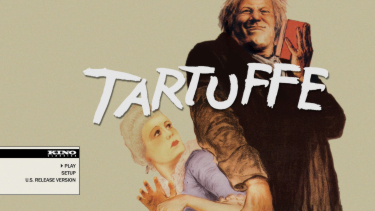 |
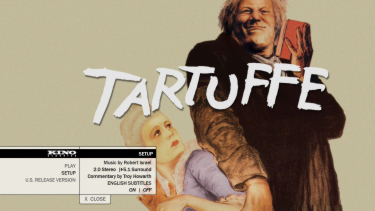 |
CLICK EACH BLU-RAY CAPTURE TO SEE ALL IMAGES IN FULL 1920X1080 RESOLUTION
|
1) Eureka Video (Masters of Cinema Series) - Region 2 - PAL TOP 2) Kino (The Restored Authorized Edition) - Region 0 - NTSC SECOND 3) Masters of Cinema - Region 'B' - Blu-ray THIRD
4)
Kino (US Version) -
Region 'A' -
Blu-ray
FOURTH
5 |
 |
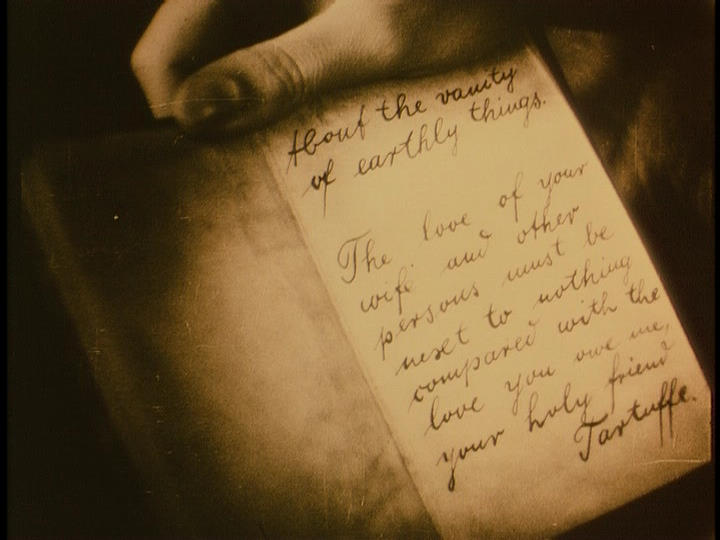 |
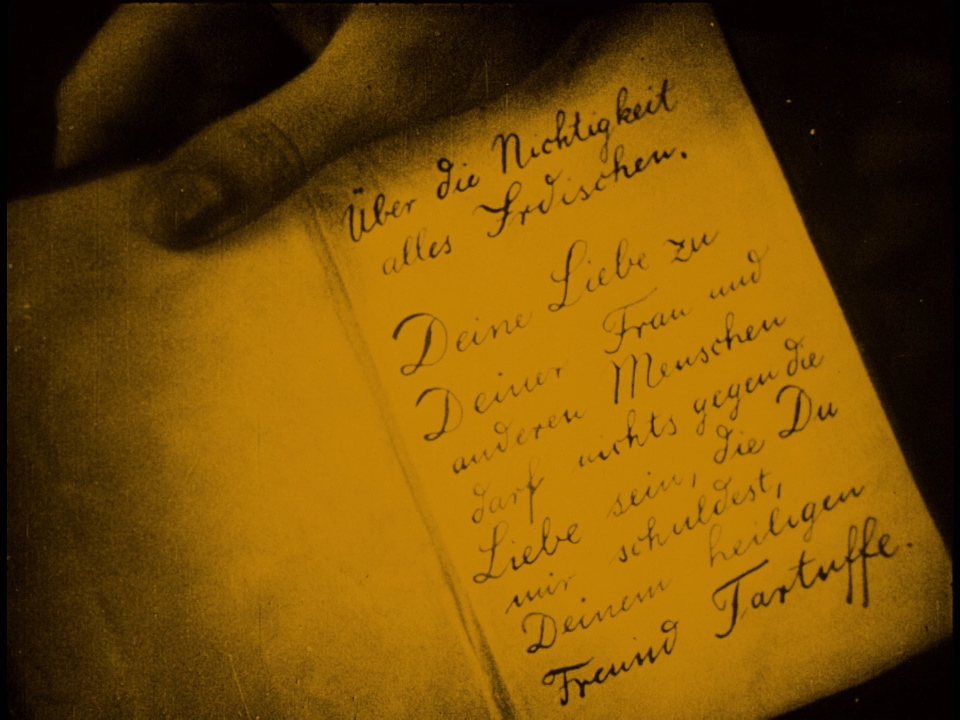 |
|
1) Eureka Video (Masters of Cinema Series) - Region 2 - PAL TOP 2) Kino (The Restored Authorized Edition) - Region 0 - NTSC SECOND 3) Masters of Cinema - Region 'B' - Blu-ray THIRD
4)
Kino (US Version) -
Region 'A' -
Blu-ray
FOURTH
5 |
 |
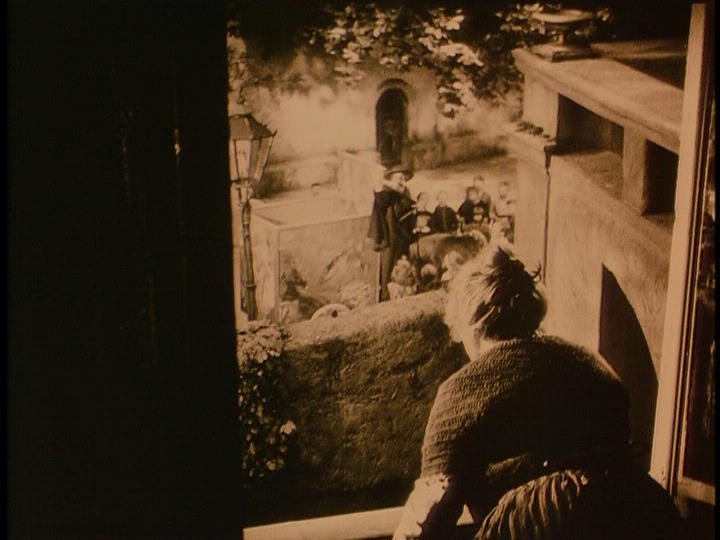 |
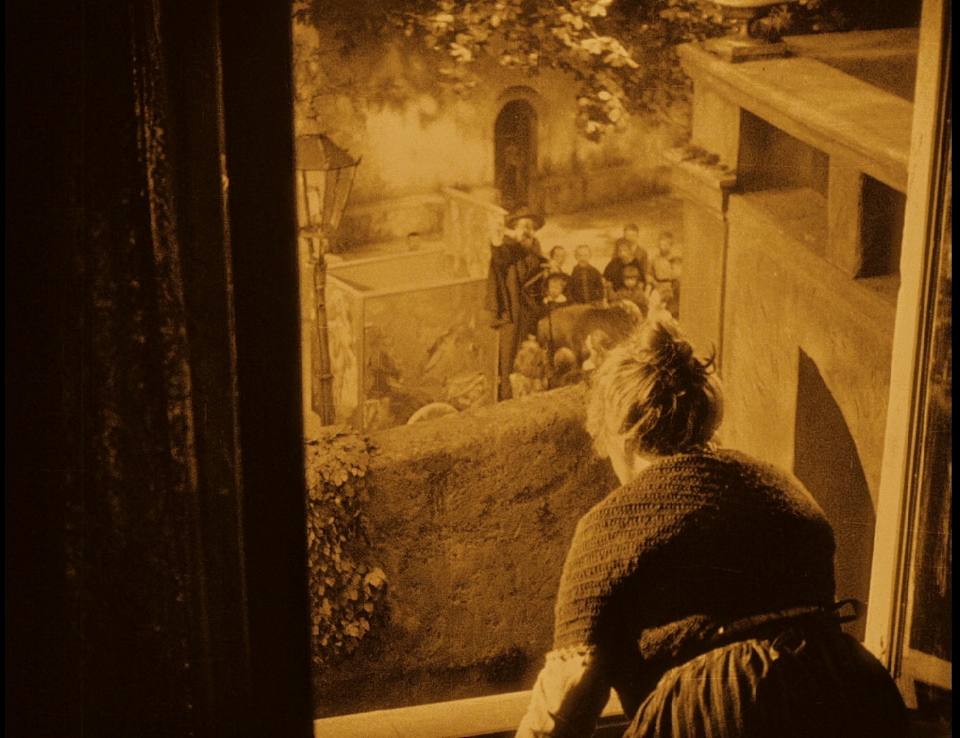 |
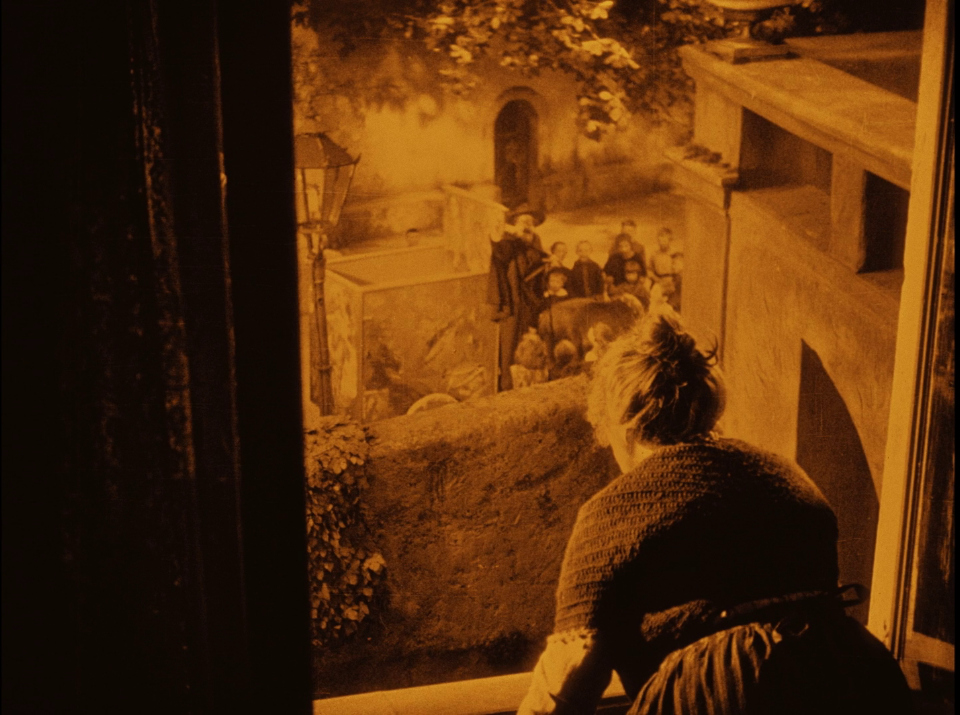 |
![]()
![]()

![]()
![]()
|
Search DVDBeaver |
S E A R C H D V D B e a v e r |



